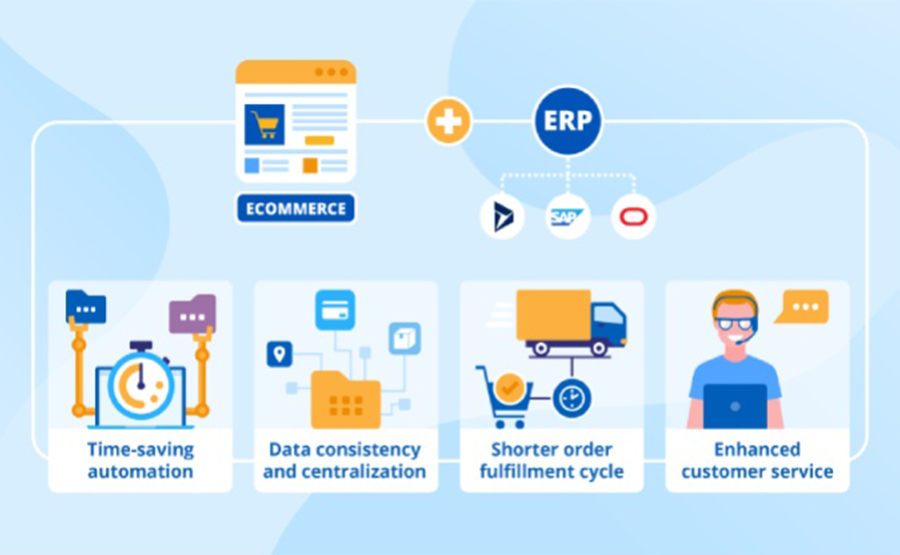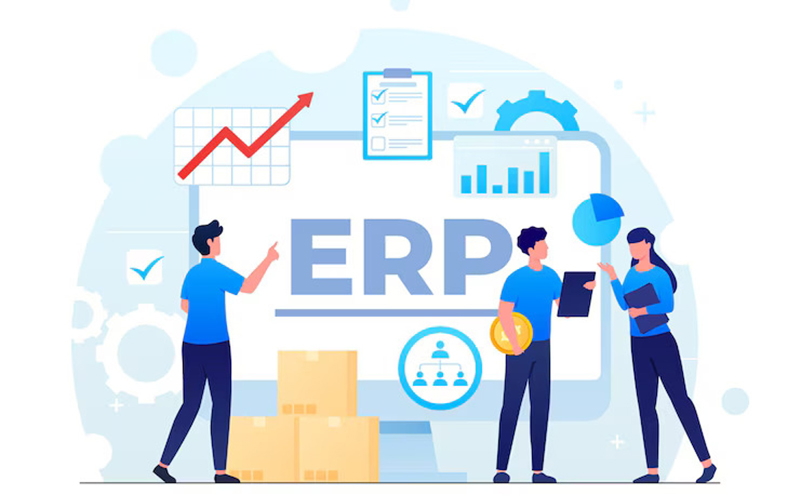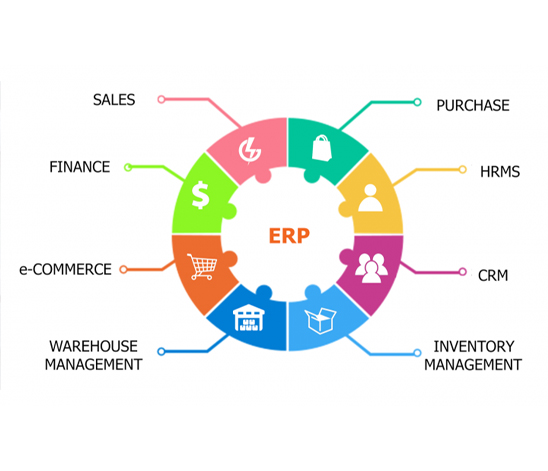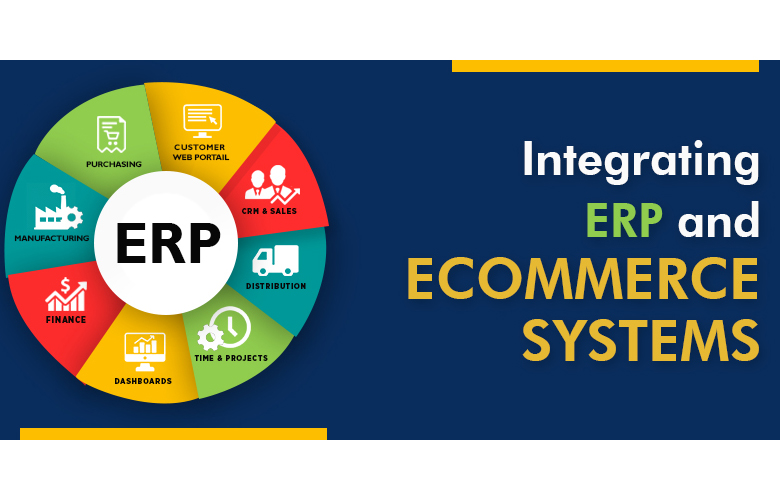
Understanding ERP in E-commerce
At its core, ERP is a comprehensive software solution that streamlines and integrates
various business processes, including accounting, human resources, inventory management,
supply chain, and more, into a unified system. On the other hand, E-commerce platforms serve
as the digital storefronts where businesses showcase and sell their products or services to
customers worldwide.
When these two powerful systems converge, they create a symbiotic relationship that
amplifies efficiency, agility, and customer satisfaction. ERP in E-commerce essentially
facilitates seamless data flow and real-time synchronisation across different functional
areas, enabling businesses to make informed decisions, optimise operations, and deliver
exceptional customer experiences.
1) Holistic View of Operations:
ERP integration provides businesses with a holistic view of their operations, from order management and inventory control to financials and customer interactions. This comprehensive insight enables stakeholders to identify trends, spot bottlenecks, and make data-driven decisions that drive growth.
2) Efficient Order Processing:
By synchronising E-commerce platforms with ERP systems, businesses can automate and streamline the order-to-cash process. This automation eliminates manual errors, reduces order processing time, and enhances order accuracy, leading to improved customer satisfaction and loyalty.
3)Inventory Management :
ERP-E-commerce integration ensures real-time inventory visibility across all sales channels. This visibility enables businesses to optimise stock levels, prevent stock outs or overstocks, and fulfil orders promptly, thereby enhancing operational efficiency and minimising carrying costs.



4) Personalised Customer Experiences:
Leveraging ERP data alongside E-commerce platforms empowers businesses to deliver personalised customer experiences. By analysing customer preferences, purchase history, and behaviour patterns, businesses can tailor marketing campaigns, recommend relevant products, and foster long-term relationships with customers.
5) Scalability and Adaptability:
As businesses grow and evolve, ERP-Ecommerce integration scales seamlessly to accommodate changing needs and market dynamics. Whether expanding into new markets, launching new product lines, or integrating with third-party applications, this integrated ecosystem remains agile and adaptable.


Overcoming Challenges

Which ERP software is best for ecommerce?
Selecting the best ERP software for E-commerce depends on various factors such as the specific needs and scale of your business, budget constraints, integration capabilities, and industry requirements. Several ERP solutions excel in catering to the needs of E-commerce businesses, each offering unique features and functionalities. Here are some popular ERP software options widely regarded for their effectiveness in E-commerce:
NetSuite
Owned by Oracle, NetSuite is a cloud-based ERP solution known for its robust E-commerce capabilities. It offers modules for order management, inventory management, financials, CRM, and more. NetSuite's seamless integration with E-commerce platforms enables businesses to manage their entire operations from a single platform.
SAP Business One:
SAP Business One is a comprehensive ERP solution designed for small and medium-sized businesses. With modules for E-commerce integration, sales, purchasing, inventory management, and accounting, SAP Business One provides end-to-end visibility and control over E-commerce operations.
Microsoft Dynamics 365 Commerce:
Part of the Microsoft Dynamics 365 suite, Dynamics 365 Commerce is tailored for retail and E-commerce businesses. It offers features such as omnichannel sales management, merchandising, inventory management, and customer insights, empowering businesses to deliver personalised shopping experiences across channels.
Magento Commerce (Adobe Commerce):
Adobe Commerce, formerly known as Magento Commerce, is a popular E-commerce platform that can be integrated with various ERP systems, including SAP, Oracle, and Microsoft Dynamics. It offers extensive customization options, scalability, and support for B2B and B2C E-commerce businesses.
Shopify Plus:
While not a traditional ERP system, Shopify Plus is a cloud-based E-commerce platform that offers robust features for high-growth businesses. It integrates seamlessly with several ERP solutions, including NetSuite, SAP Business One, and Microsoft Dynamics, through third-party connectors and APIs.
Acumatica:
Acumatica is a cloud-based ERP solution known for its flexibility and scalability. With modules for financial management, distribution, CRM, and project accounting, Acumatica provides comprehensive support for E-commerce businesses, enabling them to streamline operations and drive growth.
Epicor Commerce Connect:
Epicor Commerce Connect is specifically designed for businesses using the Epicor ERP system. It offers integration with leading E-commerce platforms such as Magento and Shopify, enabling businesses to synchronise data, streamline processes, and deliver exceptional customer experiences.
When selecting an ERP software for your E-commerce business, it's essential to evaluate each option based on your specific requirements, scalability, ease of integration, support services, and total cost of ownership. Additionally, consider consulting with industry experts or engaging in product demonstrations and trials to ensure that the chosen ERP solution aligns with your business goals and objectives.
Summary
In the digital age, where competition is fierce and customer expectations are soaring, harnessing the power of ERP in E-commerce is no longer an option but a strategic imperative. By seamlessly integrating ERP systems with E-commerce platforms, businesses can optimise operations, drive growth, and deliver unparalleled value to customers, thereby staying ahead in the ever-evolving marketplace. As technology continues to advance and consumer demands evolve, businesses that embrace ERP-Ecommerce integration will thrive in the digital economy, shaping the future of commerce one transaction at a time.
